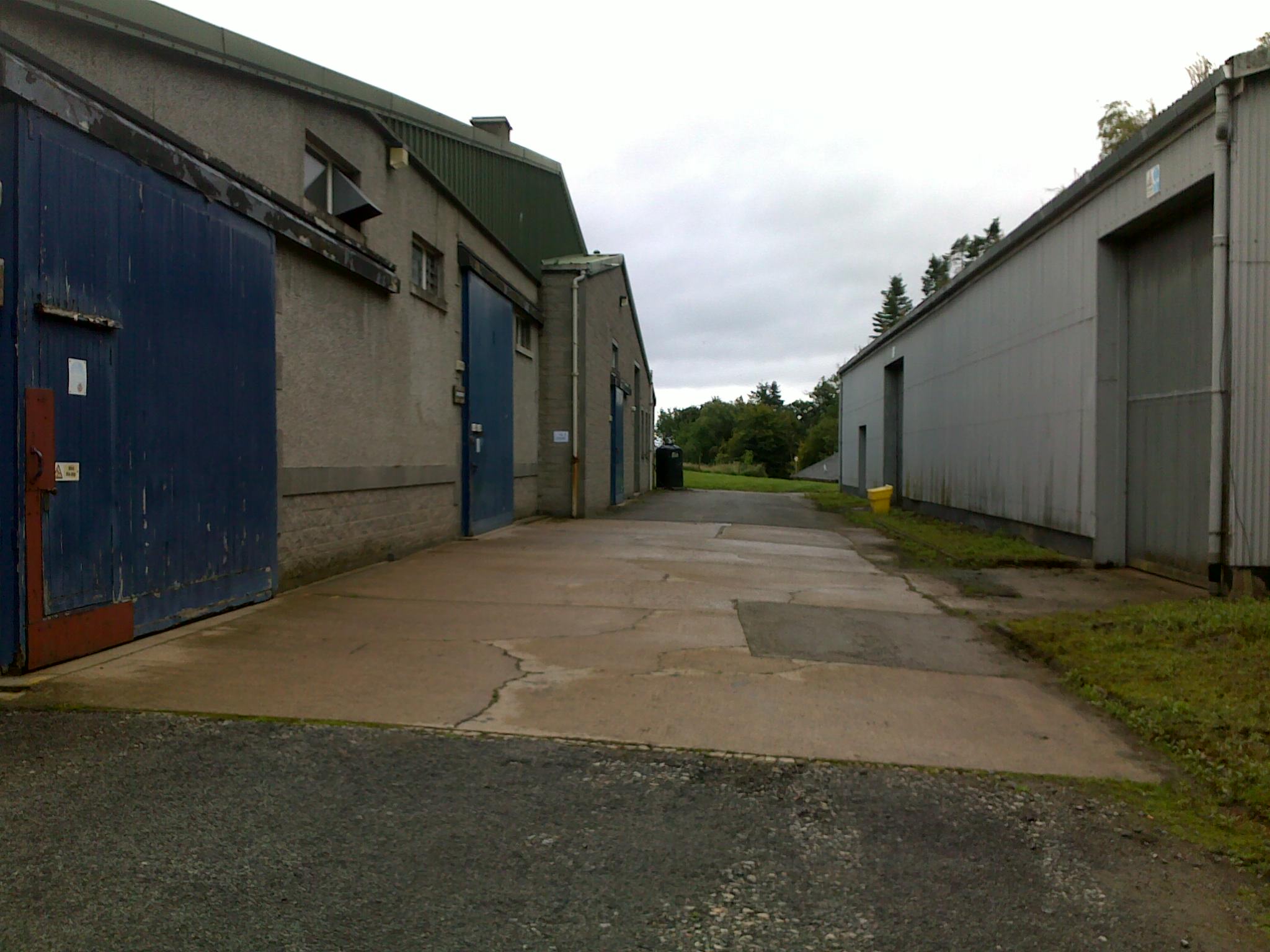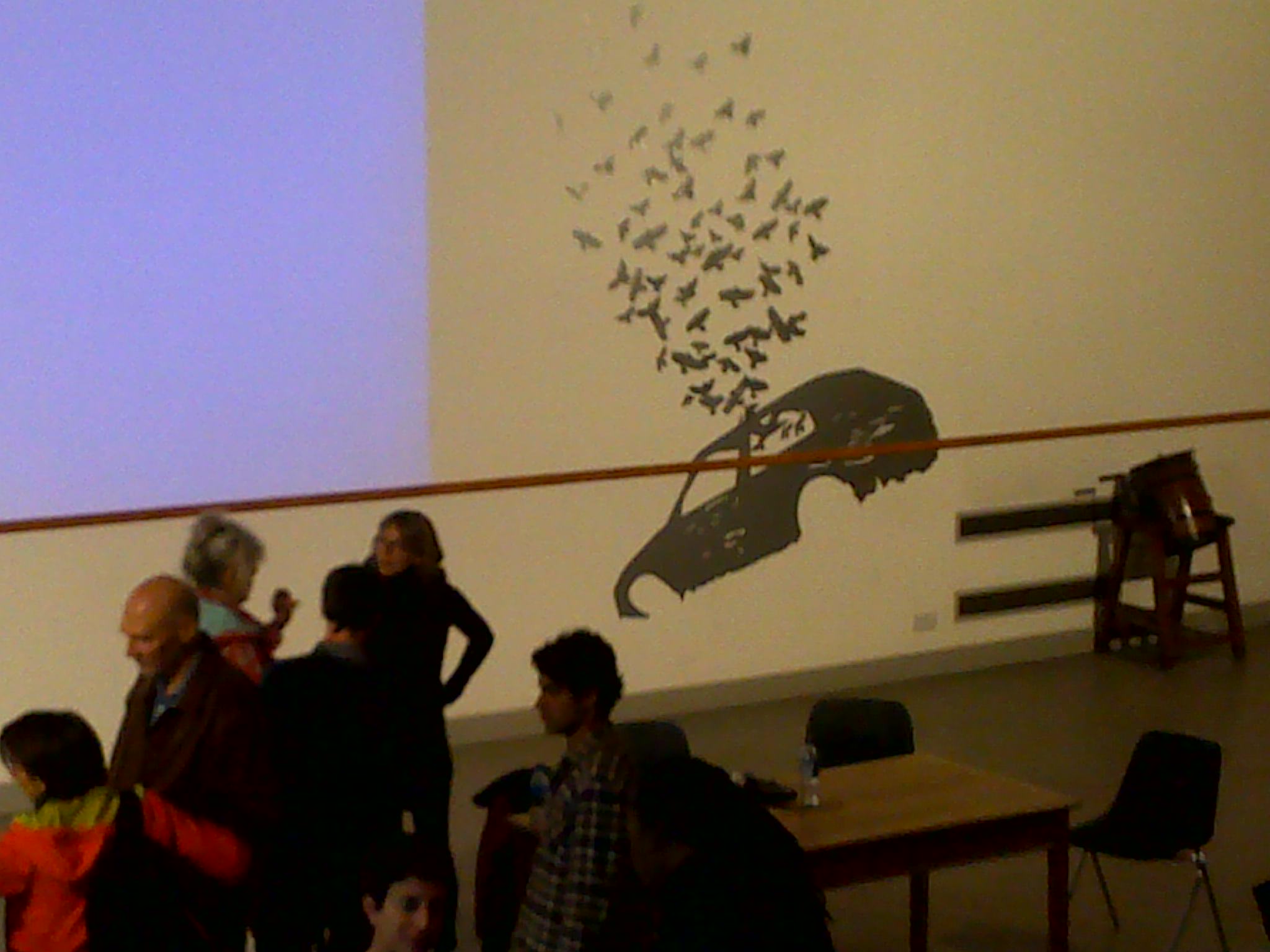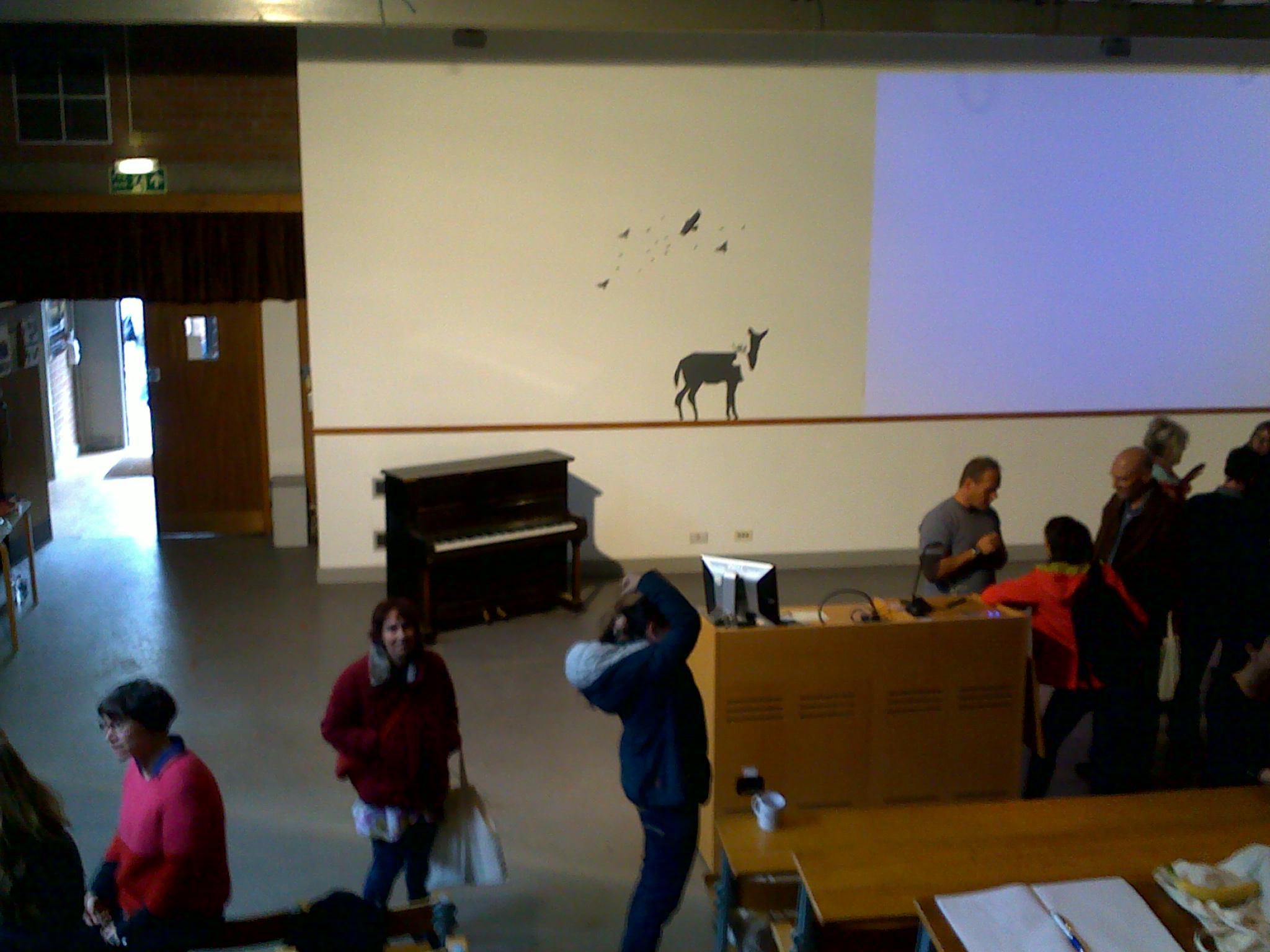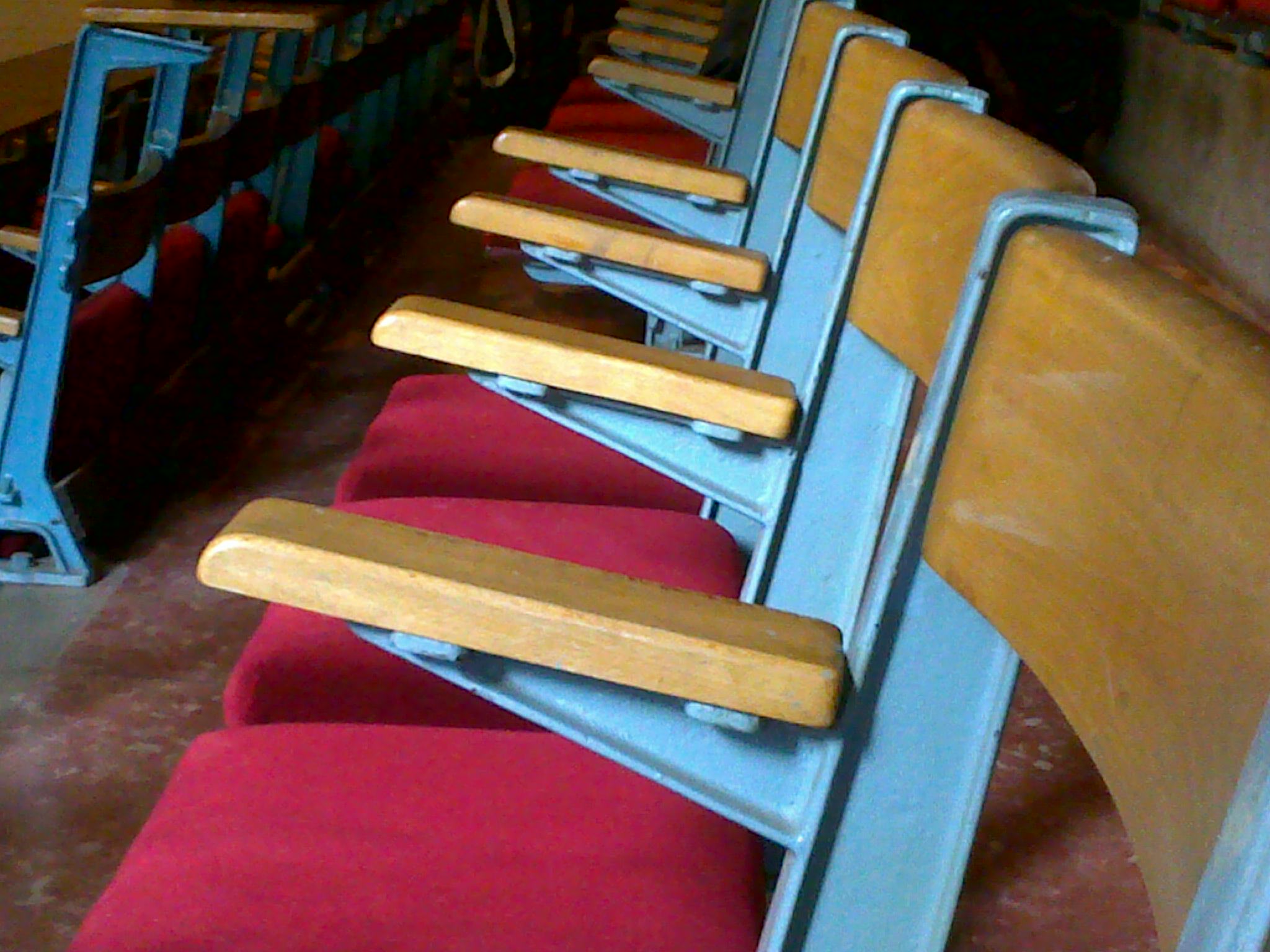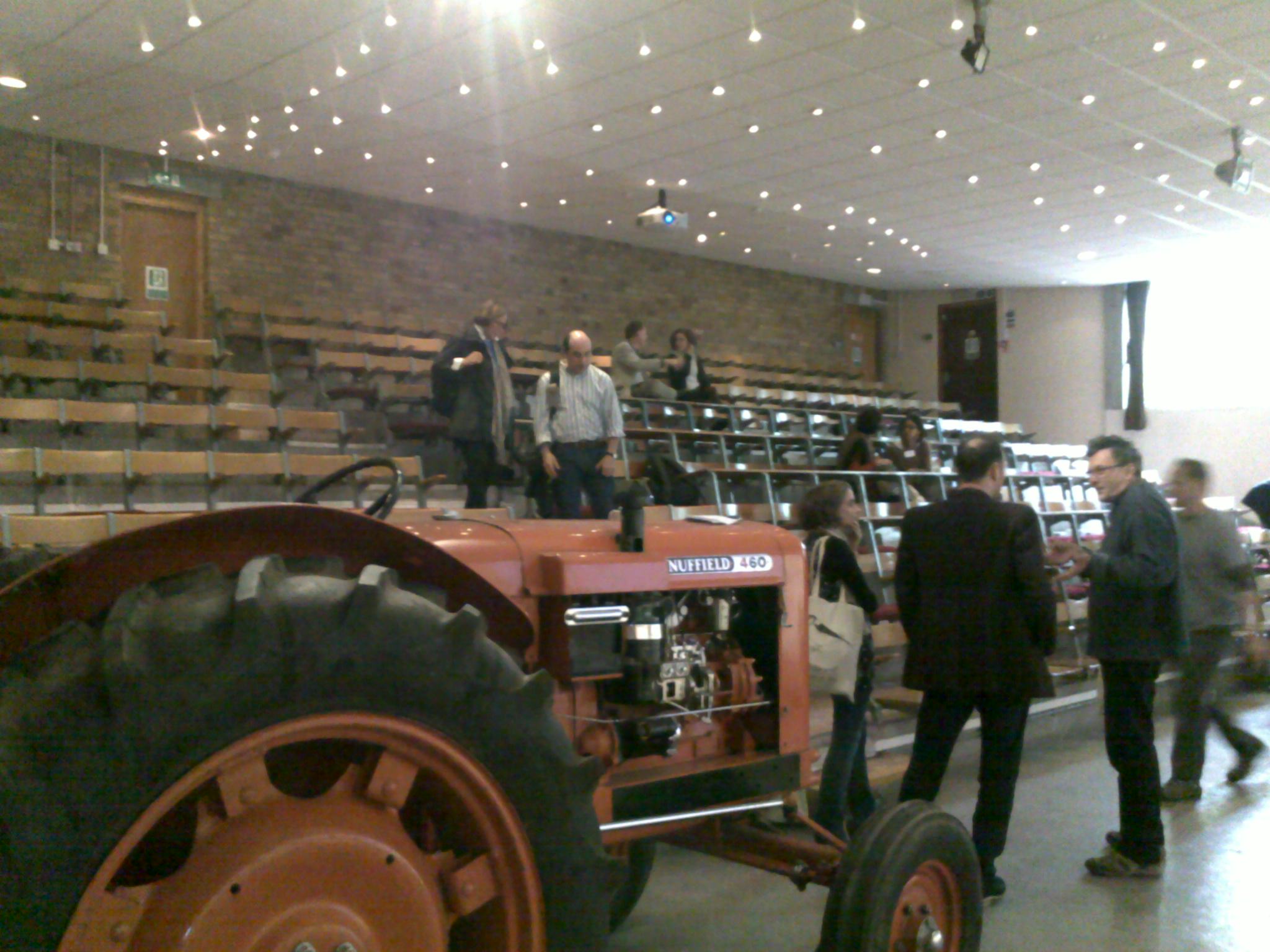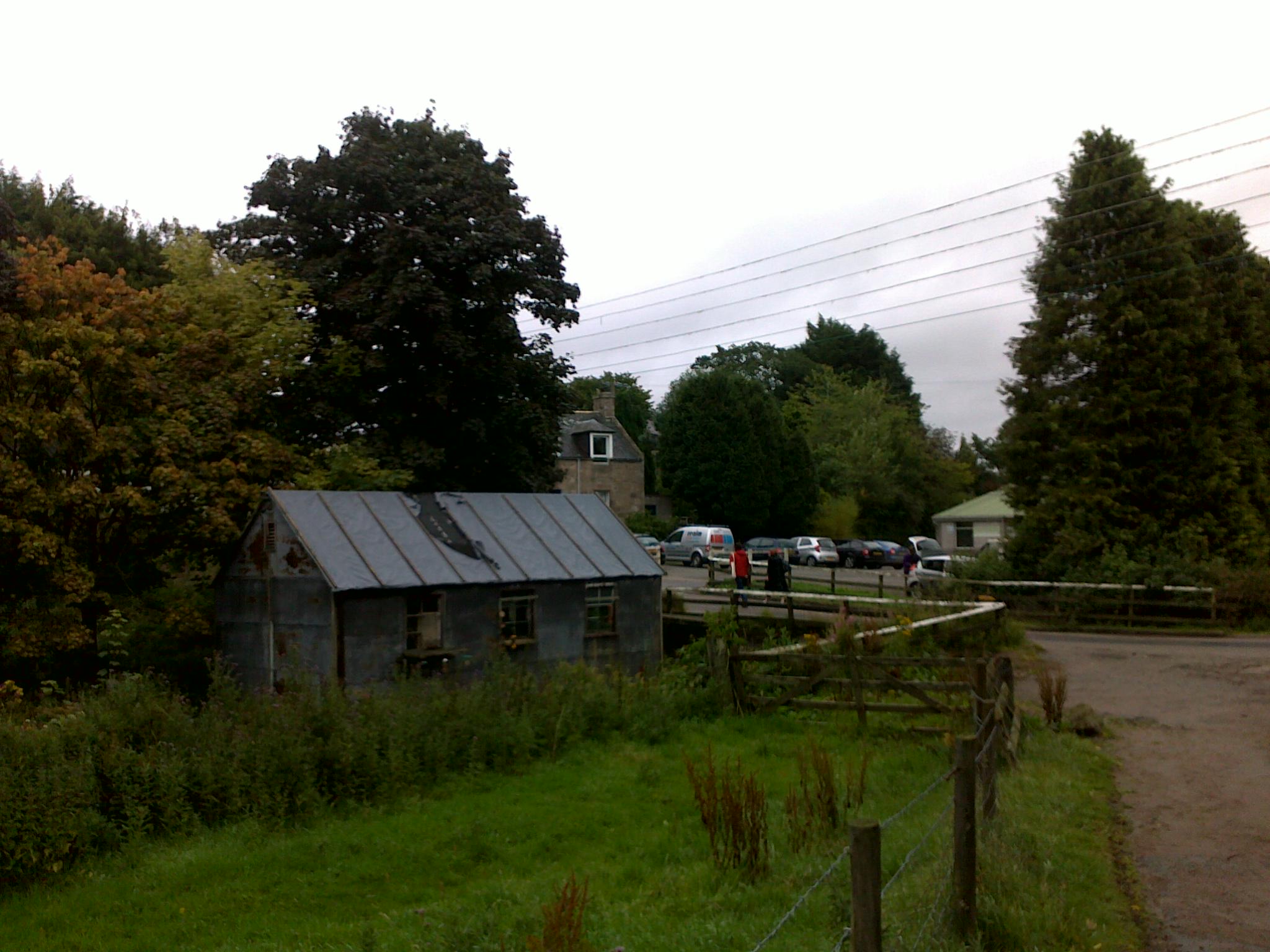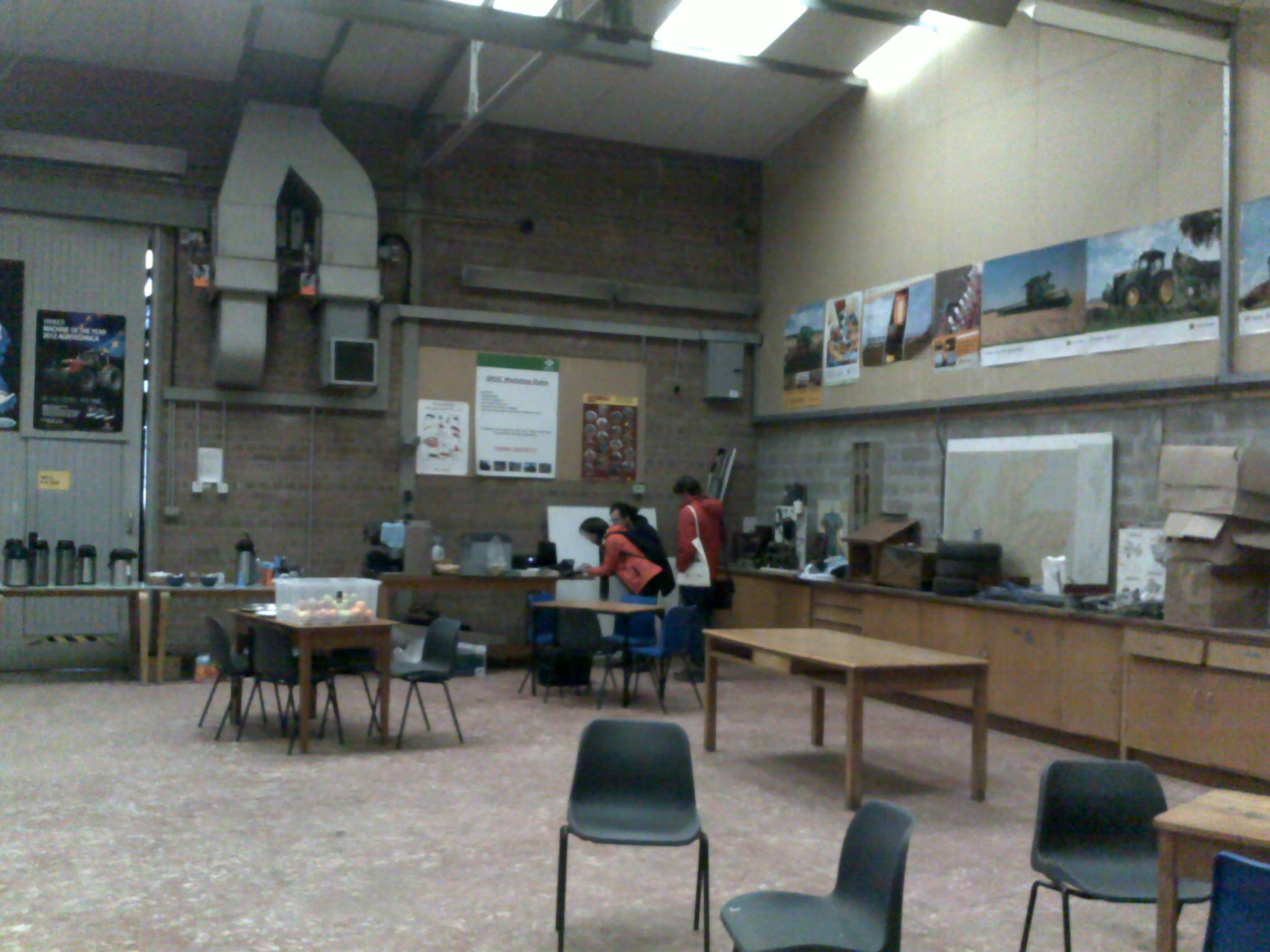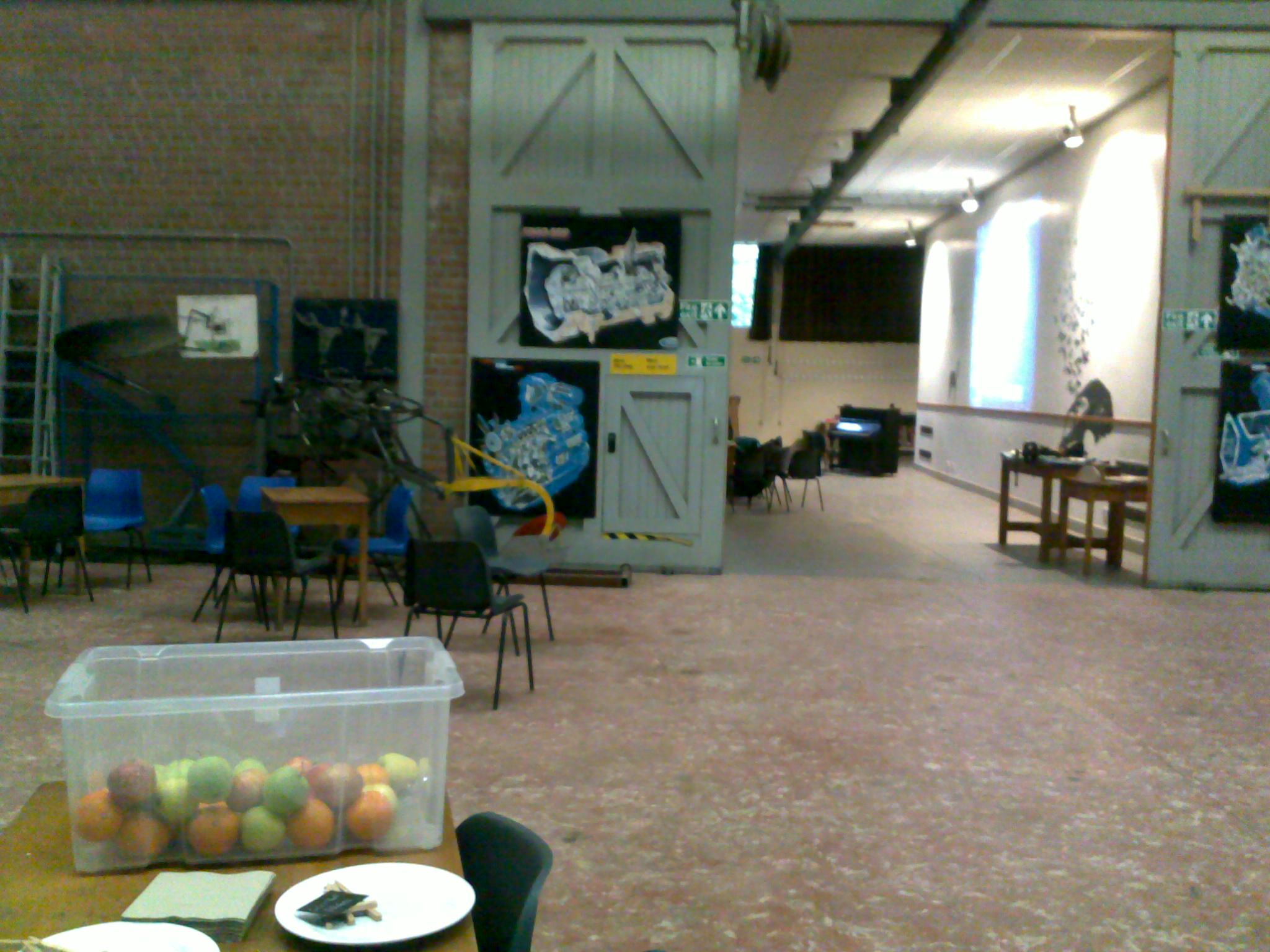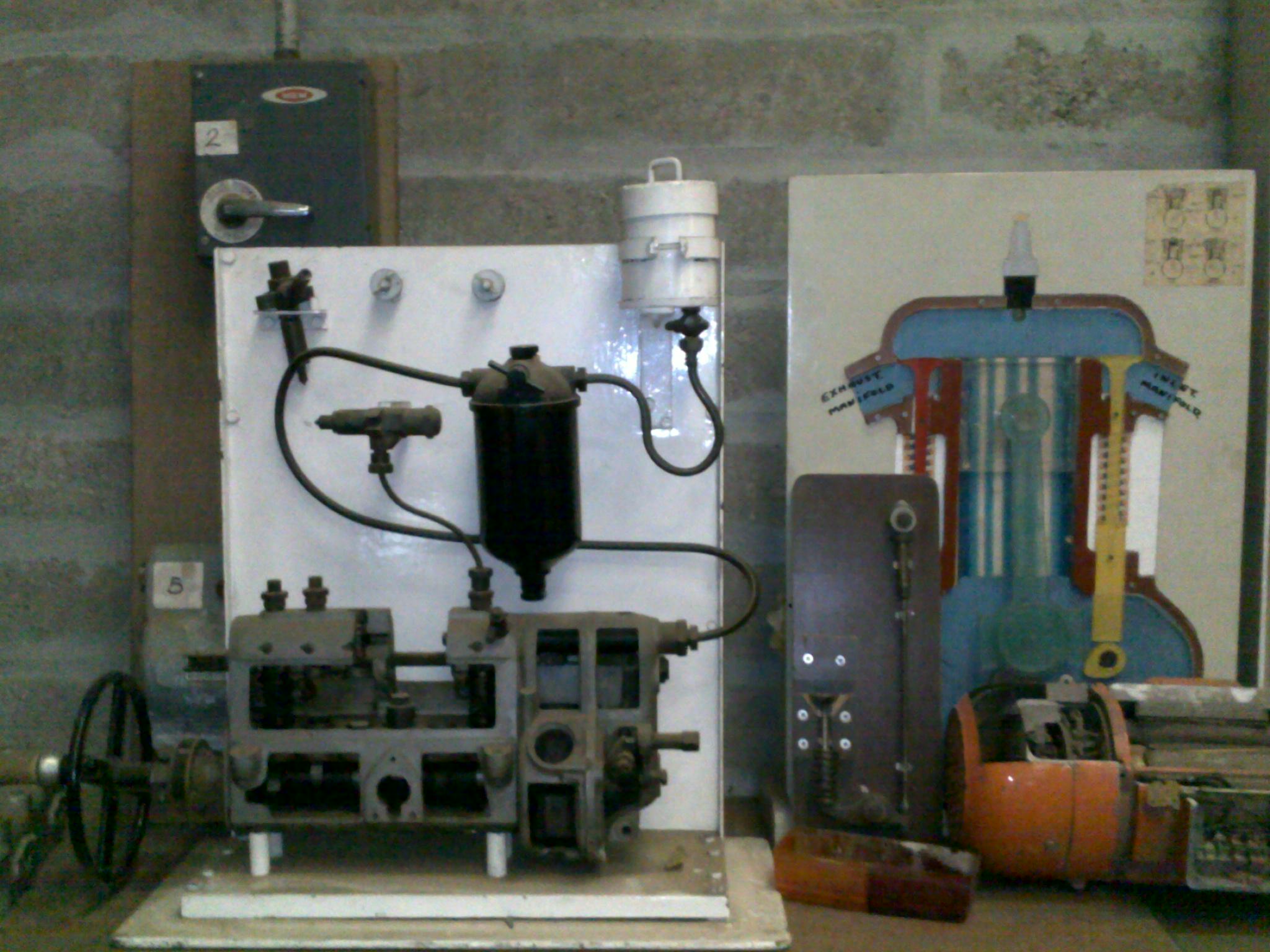Lieve Orye
sensibilities beyond science and Growing the future
I’m in between two conferences, one last week in Aberdeen in Anthropology, the next one next week in Durham organized by the Ecclesiology and Ethnography network. And ‘ethnography’ is the common denominator, or the bridging word that allows for conversations between anthropology and theology to pick up a notch.
There was a vibrant atmosphere last week at the Scottish Rural College in Aberdeen. Feeling as if walking into a big farm, participants found behind some huge blue doors an old lecture hall hidden, with seats of cast iron and red velvet cushioning telling of former glory. In front a sturdy wooden table and chairs, backed on one side by an old piano, on the other side a small tractor. Coffee and tea breaks were next door (through a yellow door as huge as the entrance door) in a smaller hall in between instruments and ploughs. Not the very well provided fancy conference hall that creates an atmosphere of expertise and importance, that makes you feel that proper suit and dress are required. Not the hall sealed off properly from the outside world as if to keep it from disturbing the important, weighty sharing around of the latest data and theories. Instead, it was an agricultural place a bit outside the city, a place good to talk about being human and human becoming, about going beyond the culture/nature divide, about human-animal relations, about sensibilities beyond science and about growing the future.
‘Beyond Perception’ refers to Tim Ingold’s 2000 book The Perception of the Environment, and to the path breaking work done within the Anthropology department in the 15 years since and picked up by so many others in all corners of the world. The range of topics was breathtaking: biology, mathematics, architecture, archaeology, environmental issues, craftsmanship and practices, dance and drawing, education and theology. In one plenary session, ‘Sensibilities beyond Science’, Tim Ingold’s article ‘Dreaming of Dragons’ was picked up, a must read for theologians who reflect on the relation between theology and anthropology or on the relation between religion and science. The session indicated an opening of space for conversation between anthropology, anthropology of religion, anthropology of Islam, the booming anthropology of Christianity on the one hand and Islamic and Christian traditions and theology on the other hand, thus going beyond Joel Robbins’ understanding of the relation as one of awkwardness and mutual mockery and as one of competition in the attempt to be the resources for renewal and transformation in our world (Robbins 2006, 2013, see also Simon Coleman’s ‘Anthropological Apologetics’ 2010). One of the most interesting ideas in Ingold's text is the exchange of the religion versus science debate as grounded in a disconnection of knowing and being with the question "whether our ways of knowing and imagining are enshrined within an existential commitment to the world in which we find ourselves" or not, thus opposing religion, as recognizing these commitments as well as the relation between knowing and being, to negligence, an attitude of using or owning the world without properly listening to it and without recognizing one's owings, one's debts (Ingold 2013:746).
There was a kind of urgency in the air, as well as a feeling of experimenting, of the incipient, even though the event celebrated the past 15 years of anthropology in Aberdeen. A concern that surfaced again and again was the need for anthropology to engage and find ways to have its voice heard in the important discussions of our times, in the conversations about our world’s future. It is these same concerns, or at least strong overlapping concerns, that I feel are present as well in the ‘theology and ethnography’ discussions. In both fields work can be found that, inspired by the form of otherness that nourishes the discipline, is quite critical of the current lopsided ways in which being human and human becoming are often framed and of the just as lopsided ways in which knowledge, learning and research and their relation to the world's future are understood both by university and government.
On the grid/off the grid
One paper, interesting for everyone to think with, was a paper on the difference between living ‘on the grid’ or ‘off the grid’ in Canada. That is, the difference between having electricity and water supplied by the grid on the one hand and on the other hand having to figure out with the materials at hand and in direct relation to one’s surroundings and the weather how to provide energy and water, while weaving one’s own goals and desires in constant direct relation to what could be made available. In a way, this ‘on the grid’/ ‘off the grid’ mapped out on, on the one hand, having a conference downtown in a fully equipped conference room that keeps the outside from barging in, and on the other hand, the option taken by the ‘Beyond Perception’ team that worked hard to bring about an ecology-minded dynamic conference in a venue that was, though of course not completely, kind of ‘off the grid’ conference-wise. The outside, the wind, the cold weather was never completely shut out. Rather than having all the necessities standard provided in an uncluttered space, keeping things predictable and efficient as well as all the efforts and materials to make things happen rather hidden, unnoticed, the team had to work hard with what was available, making the best of the opportunity. The presenter of this keynote paper, Phillip Vannini, made the distinction between ‘on the grid’ as the occupation of places that allow to ignore the outside as we do living in our warm houses supplied by electricity and water, and to ignore where energy comes from, counting on their constant availability – a relation of negligence to the outside, one could say – and ‘off the grid’ ‘opportunism’, referring to the etymological meaning of ‘ob-portus’, from the Latin Ob-, meaning 'towards,' and portu(m), meaning 'port,' where sailors had to wait for the right conditions to sail into.
This distinction is useful to think with in many contexts (and I wonder what it would teach us for instance in the current situation of receiving refugees in Europe), especially because we, academicians, anthropologists as well as theologians, but also as citizens, find ourselves in relation to a lot of things ‘on the grid’, attached to networks of circulation that make certain things constantly available and certain demands and expectations rather unquestioned, turning us blind to the outside, missing out opportunities to expose ourselves to the world that speaks in its own time. As disciplines nourished by an otherness, theologians and anthropologists but also educationalists who recognize the child's otherness and all kinds of other scientists who have discovered the world is to be listened to on her terms the 'on the grid' requirements often feel like a straight jacket. I wonder if the distinction maps on the distinction between the university as institution and the university as movement that educational philosophers Jan Masschelein and Simon Maarten make (2013). Whereas there is a rich university history as “the history of the victors, of those who manage to tame the disruptive or suspending movement of public thinking… [t]he history of the university as movement is yet to be told”(2013:108). I see the ‘Beyond Perception’ conference at the Scottish Rural College as part of that history of the university as movement. It was a group of people, not gathered around a production aim or under some defined rule, but around some “things”, that, to say it with Ingold’s words, were faced not with the back already turned to it because of goals and attention elsewhere, but listened to, through the work of all these anthropologists and other scientists present there, becoming attentive to them in order to grow a better future (see Ingold & Hallam 2014). This was done, in the shadows of Aberdeen University’s institutional and managerial thinking ‘on the grid’ deciding that according to some numbers and ratios provided by the grid the department of anthropology was a third too big. Theology knows how this feels, and I hope to experience next week that what draws theologians to ethnography is precisely this same drive of reconnecting with the world, and with the people in the pews, in an ‘off the grid’ way. A blog post on the Ecclesiology and Ethnography conference is planned, have a read in about 10 days.
Coleman, S. (2010), 'An Anthropological Apologetics,' South Atlantic Quarterly, 109(4), 791-810.
Ingold, T. (2000), The Perception of the Environment. Essays in Livelihood, Dwelling and Skill. London & New York: Routledge.
Ingold, T. (2013), ‘Dreaming of Dragons: on the Imagination of Real Life,’ Journal of the Royal Anthropological Institute, 19, 734-752.
Ingold, T. & Hallam, E. (2014), ‘Making and Growing: An Introduction,’ in Making and Growing: Anthropological Studies of Organisms and Artefacts. Burlington: Ashgate.
Masschelein, J. & Simons, M. (2013), 'The Politics of the University: Movements of (de-)Identification and the Invention of Public Pedagogic Forms,' Education and the Political, 107-119.
Robbins, J. (2006), 'Anthropology and Theology: An Awkward Relationship?' Anthropological Quarterly, 79(2), 285-294.
Robbins, J. (2013), 'Afterword: Let's Keep it Awkward: Anthropology, Theology, and Otherness,' The Australian Journal of Anthropology, 24(3), 329-337.

